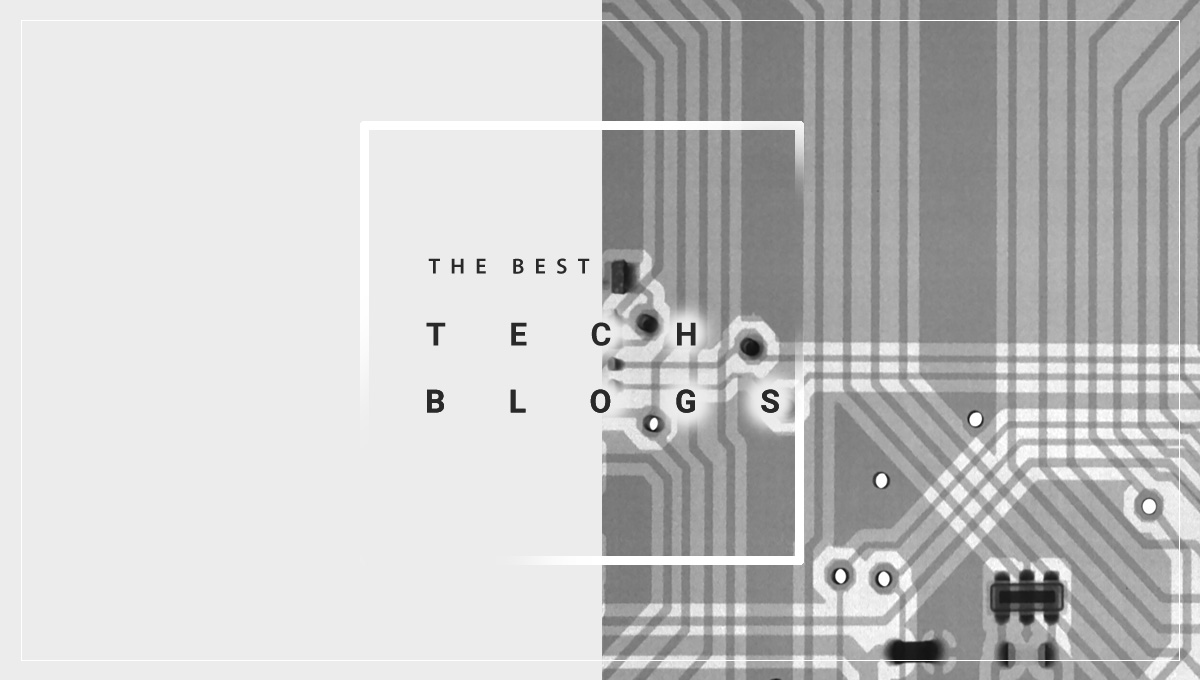How Blockchain Modern Technology Is Revolutionizing Data Protection
Blockchain technology is basically altering the landscape of data safety by presenting a decentralized framework that guarantees improved transparency and durability. Unlike conventional systems, which rely upon central data repositories, blockchain distributes data across a network, reducing vulnerabilities and solitary points of failure. Using sophisticated cryptographic methods guarantees that information continues to be tamper-proof, promoting count on amongst stakeholders and customers. As markets rapidly adjust to this modern technology, concerns develop about its more comprehensive effect and prospective obstacles. What effects does this change hold for future data protection strategies and regulatory structures? The solutions might surprise you (Best tech blog).
The Essentials of Blockchain
Blockchain modern technology, an innovative concept in digital data administration, basically changes exactly how information is kept and protected. At its core, a blockchain is a distributed journal that tape-records deals across a network of computer systems, making certain transparency and immutability. The modern technology operates on a chain of blocks, each containing a listing of purchases. As soon as a block is filled up, it is time-stamped and connected to the previous block, creating a sequential chain.
Secret to recognizing blockchain is the hashing process, which encrypts purchase data into a distinct alphanumeric code. This cryptographic feature guarantees that any change in the transaction information causes a completely various hash, therefore guarding against tampering. The consensus device, another vital element, confirms and verifies new deals with a network of nodes, thus eliminating the need for a central authority.
Additionally, blockchain's append-only structure makes sure that information, once added, can not be deleted or altered. This particular assurances a proven and long-term record of deals, promoting trust fund among participants. Because of this, blockchain offers a durable framework for information integrity, using industries a dependable method for monitoring and handling electronic info in a protected, clear manner.
Decentralization and Security
Decentralization, a core principle of blockchain innovation, significantly improves information protection by dispersing control throughout a network rather than counting on a single, centralized entity. By spreading information throughout many nodes, blockchain guarantees that even if one node is endangered, the entire network remains secure.

Each individual in the network has access to the entire blockchain, allowing them to validate and examine transactions individually. In general, decentralization is important in enhancing information safety and security in blockchain networks.

Cryptographic Methods
At the heart of blockchain modern technology, cryptographic strategies play a critical role in securing data, making sure both confidentiality and honesty. Cryptography in blockchain uses a mix of symmetric and asymmetric algorithms to encrypt information, making it obtainable only to accredited parties.
Hash features are another important part, transforming input data right into a fixed-size string of personalities, successfully producing an one-of-a-kind electronic fingerprint for each and every block. This makes sure that any type of attempt to alter the data will certainly cause an entirely various hash, therefore maintaining the immutability of the blockchain. Digital trademarks validate the authenticity and integrity of transactions, supplying a layer of non-repudiation.
The decentralized nature of blockchain, combined with durable cryptographic techniques, removes the demand for intermediaries, reducing potential susceptabilities. As blockchain innovation progresses, innovations in cryptography such as zero-knowledge proofs and homomorphic encryption continue to improve safety and security steps, additionally fortifying data defense in this cutting edge electronic ledger system.
Usage Situations Throughout Industries

In the healthcare industry, blockchain ensures the safe storage and sharing of person records, advertising interoperability while protecting delicate information from unauthorized gain access to. This technology empowers clients with control over their case history and helps with seamless coordination amongst healthcare companies.
Supply chain monitoring advantages dramatically from blockchain's immutable journal, which makes certain traceability and authenticity of products from beginning to consumer. By improving transparency, blockchain aids reduce concerns such as counterfeiting and unethical sourcing.
Additionally, blockchain's decentralized nature is reshaping the energy sector by enabling peer-to-peer power trading, where consumers can deal excess renewable power directly. This fosters an extra sustainable and efficient energy ecological community.
In the realm of copyright, blockchain gives a tamper-proof platform for makers to register and safeguard their works, ensuring rightful attribution and fair payment. These varied use situations highlight blockchain's function as a critical force in redefining information safety across industries.
Future of Data Protection
As we aim to the future of data defense, blockchain modern technology is positioned to play an essential role in safeguarding electronic details. With its decentralized and immutable features, blockchain supplies a durable structure for securing sensitive data versus unauthorized accessibility and cyber risks. This modern technology ensures that as soon as data is recorded, it is virtually impossible to modify without discovery, hence offering a substantial advantage over typical data storage space approaches.
The integration of blockchain with other advanced innovations, such as fabricated knowledge and the Net of Points (IoT), is expected to boost information security strategies further. By leveraging clever contracts, companies can automate and impose safety and security protocols, decreasing human mistake and increasing performance. Furthermore, blockchain's capability More hints to give transparent and deducible transactions will bolster count on and liability in data administration methods.
As regulative landscapes progress, blockchain's compliance-friendly nature will certainly end up being progressively pertinent. It can assist companies satisfy rigid data security policies, such as the General Data Defense Policy (GDPR) and the California Customer Privacy Act (CCPA), by providing verifiable documents of information handling tasks. Eventually, blockchain's distinct features placement it as a transformative tool in the continuous mission to secure the digital globe versus ever-evolving cyber hazards.
Conclusion
Blockchain technology stands for a standard change in information safety and security by leveraging decentralization and cryptographic techniques to improve openness, trust fund, and data honesty. article source Its capacity to eliminate single factors of failing and employ consensus systems significantly minimizes the danger of scams and cyberattacks. This ingenious structure not just encourages customers with better control over their information but additionally lines up with governing compliance. As cyber hazards evolve, blockchain becomes an important tool for robust information protection throughout numerous industries.
Blockchain modern technology is basically altering the landscape of data security by presenting a decentralized structure that assures improved openness and strength. Unlike typical systems, which count on centralized data databases, blockchain distributes data across a his comment is here network, lessening vulnerabilities and solitary factors of failing.Decentralization, a core principle of blockchain modern technology, dramatically boosts data protection by distributing control throughout a network rather than counting on a singular, central entity.At the heart of blockchain innovation, cryptographic techniques play an essential duty in securing information, making certain both privacy and integrity.Blockchain innovation stands for a paradigm change in information safety by leveraging decentralization and cryptographic techniques to enhance transparency, depend on, and data honesty.